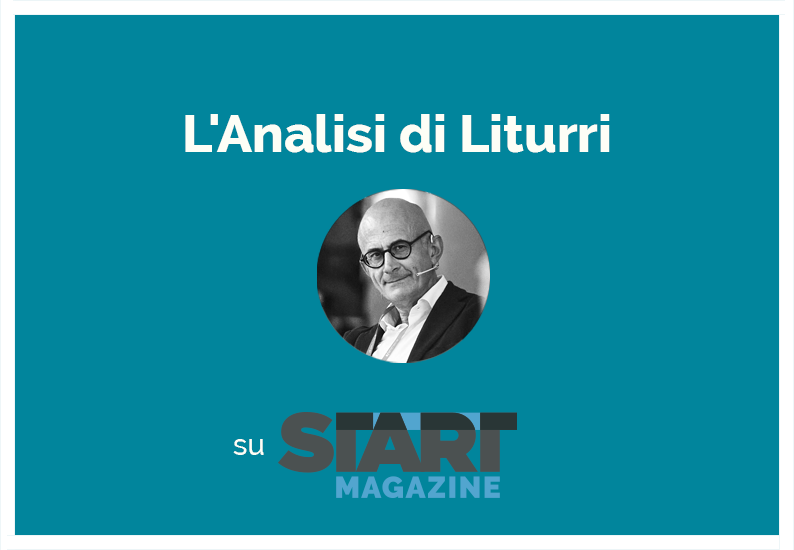What (not) is said about the Italy-Algeria agreement on gas

Giuseppe Liturri's analysis
There is a gigantic unspoken about the April 11 trip that brought Prime Minister Mario Draghi to Algeria in search of additional volumes of gas.
The Italian press focused on the billions of cubic meters (gradually, there will be 9 and then 11, fully operational between 2023 and 2024) that the Algerian state company Sonatrach will supply to Italian buyers, Eni in the lead. Algeria is already the second Italian supplier and supplies 21 billion cubic meters per year, about 27% of annual consumption.
Little or nothing has leaked about what the Spanish newspapers (ABC and El Pais, among others) have highlighted, with great clamor and a pinch of envy, in commenting on Draghi's visit, of which ABC wrote that "he won the lottery without even buying a ticket ".
One comparative adverb too many was enough (the Moroccan one is the "most serious, realistic and credible basis") by the Spanish Prime Minister Pedro Sanchez, regarding the proposal of the Moroccan government for the settlement of the historic problem of Western Sahara and in Algiers are immediately jumped the nerves, even going so far as to recall the Algerian ambassador to Madrid in his homeland.
Suddenly the doors to Italy opened wide after weeks in the antechamber and, according to what ABC reported, Algerian leader Abdelmayid Teboun allowed only two days to pass between the revelation (which took place on March 18) of the letter with which Sanchez he bowed to the Moroccan plan and his agreement to the meeting with Draghi, which was then set for 11 April.
The Algerian government, with a snap of its fingers, has replaced Spain as a privileged partner for the sale of the gas they have in large quantities. A role of primary importance was also played by Eni, which for some time has had a fruitful relationship of collaboration with the Algerians and, through its CEO Claudio Descalzi, immediately declared itself willing to make those investments for research and exploitation. of the deposits that Algiers enormously needs.
The Western Sahara affair has its roots in 1976, when Spain decided to abandon its colony, letting Morocco take it over, without allowing the Sahrawi people to self-determine, as requested by the UN. Since then, the Polisario Front, under the protective wing of Algiers, which immediately hosted the refugee camps of the Saharawis fleeing the war, has fought for independence against the Moroccan military, in an alternation of ceasefire and recovery hostilities.
Now the letter exchanged between Sanchez and the Moroccan king Mohamed VI – with which the Moroccan plan for a relative autonomy of the disputed territory is essentially accepted and the requests for independence of the Sahrawis are ignored – was the straw that broke the camel's back in relations. with Algeria, after they had not hesitated from Rabat in 2021 to unleash a migratory crisis in the Strait of Gibraltar, to respond to the treatment provided to the leader of the Polisario Front in a hospital in Madrid. For an ambassador (the Moroccan one) who has returned to Madrid, there is another (the Algerian one) who has returned home.
The rust in the triangle Rabat, Madrid, Algiers had long been smoldering under the ashes. From Algiers, in order to spite the Moroccans, they did not hesitate in October to close one of the two gas pipelines (Medgaz) that transported Algerian gas to Spain through Morocco and, consequently, in the first months of the year the volumes of gas on the The Spain-Algeria axis fell by 24% and those imported from the United States by ship increased significantly, although it is notorious for a higher price than that transported by gas pipelines. As a further insult, Naturgy (Spanish gas buyer) was asked for a raise by the Algerian supplier. A real diplomatic disaster.
The details of the cost that Eni has obtained are not known, but the leaked news speak of a cost 20% lower than that listed on the Amsterdam stock exchange, but certainly higher than what Eni paid until now to the Russian Gazprom, exploiting contracts of long term. Another sign that, even if the Draghi government succeeds in completely replacing the Russian gas supply, this would happen at a significantly higher cost.
The geopolitical tensions between Morocco and Algeria – which in this specific case we exploited in our favor, taking advantage of the sudden Spanish move – cannot, however, take a back seat. We are replacing the Russian supplier that did not hesitate to wage a war behind the front door, with another supplier that does not offer all the guarantees in terms of reliability.
And what if tomorrow Algeria, annoyed by Morocco's substantial annexation of Western Sahara and the defeat of the instances of the Polisario Front, attacked its bulky neighbor? Should we once again redesign all supply agreements?
Throughout this story, there is an impressive chronological mismatch between the decisions to sanction Russia and isolate its economy, while finding alternative energy suppliers, and the very long time frames in which such decisions become effective.
Reversing the strategic arrangements for the supply of important inputs to the European economy requires infrastructure and investments. Doing it without gradualness, in the wake of the emotion and indignation deriving from the use of weapons to the detriment of civilians, is a choice that could prove to be short-sighted and even counterproductive.
When those decisions come to fruition, we do not know if Russia will still be on the bad side and Algeria on the good side.
This is a machine translation from Italian language of a post published on Start Magazine at the URL https://www.startmag.it/energia/che-cosa-non-si-dice-dellaccordo-italia-algeria-sul-gas/ on Sun, 17 Apr 2022 07:43:03 +0000.
